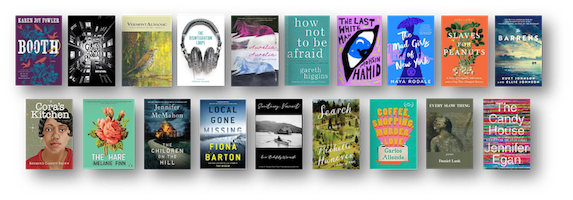Episodes

Monday Nov 15, 2010
Write The Book Interview #119 (11/15/10) Joseph Mazur
Monday Nov 15, 2010
Monday Nov 15, 2010
Interview with Vermont Mathematician, Professor and Author Joseph Mazur. This week's Write the Book Prompt was suggested by my guest, Joseph Mazur. I'm including it in his words, as sent to me in an email:
Good luck with this prompt and please listen next week for another.You know that nonfiction writing requires the writer to bring readers to places they haven't ever been and to tell them things they have not known. In one single sentence, that is the task of the nonfiction writer. But to keep readers reading, a book must be alive with human experience. That's the job of anecdotal entrances and anecdotal relief.
Anecdotes are there to first amuse, and therefore hook the reader, and then to give clues to what the book is about.
If you are writing nonfiction, try weaving in as much anecdotal material as possible. Take a look at some of Stephen Jay Gould's books for fine examples. Gould was the king of anecdotal entrances.
There are a few principles to favor when using a leading anecdote-Bring in something that the reader can identify with, a character, a place, an object, or a brief amusement. Watch out for making it too specific-specificity has an uncanny way of creeping into the lead to defeat the hook.
I introduce each of my own books with lead anecdotes-
I came to understand mathematics by way of a Russian novel. (The first sentence in a book about truth and logic in mathematics.)
My father was the first person to tell me about paradoxes of time. (The first sentence in a book about time and motion.)
When I was a child, my uncles would gather every Saturday at my grandparents' house to sit at a long dining room table telling jokes while accounting their week' s gambling wins and losses. (The first sentence in a book about the history and psychology of gambling.)
My own high school days were the near misfortune of my teenage years. (The first sentence in a book about learning math in an inner-city high school.)
What about anecdotal relief? In most cases, relief suggests a reprieve from something burdensome. And burdensome reading is never a welcome task. However, unless it is memoir or biography, nonfiction often involves the burden of strings of complicated information that tends to swell into what sometimes seems to be disconnected from thoughts of the real world. Even the best nonfiction writers need to think about anecdotal relief just as the most indefatigable readers need respite.


Comments (0)
To leave or reply to comments, please download free Podbean or
No Comments
To leave or reply to comments,
please download free Podbean App.